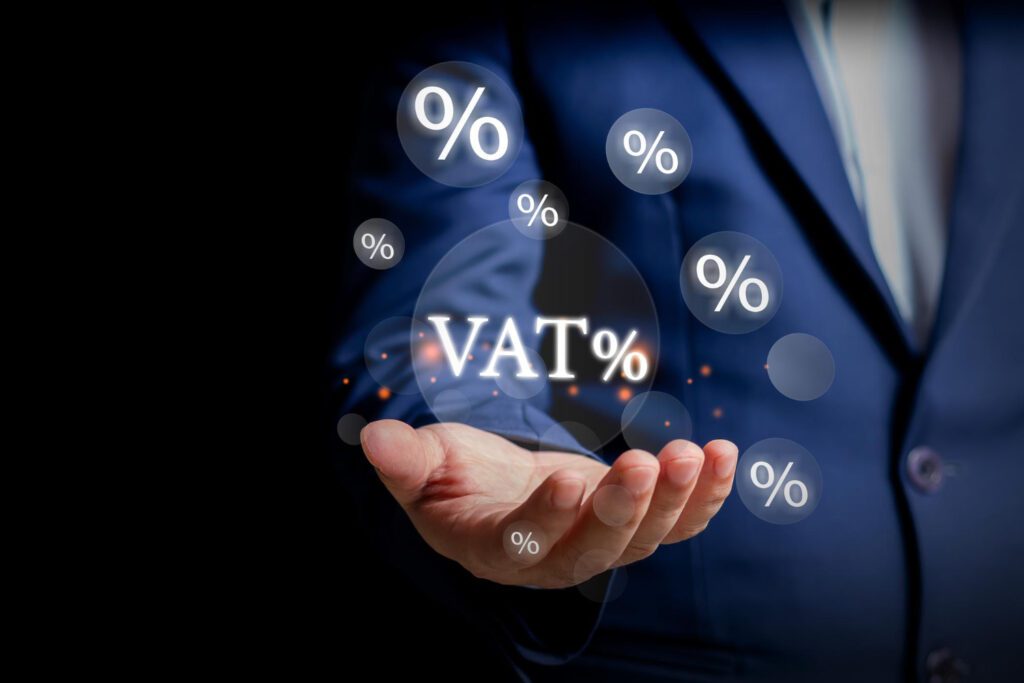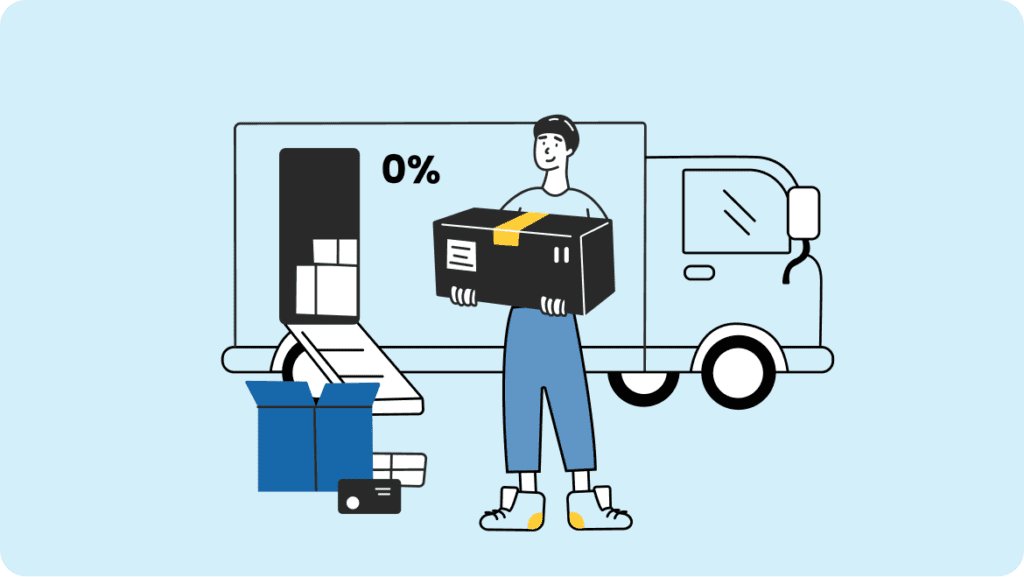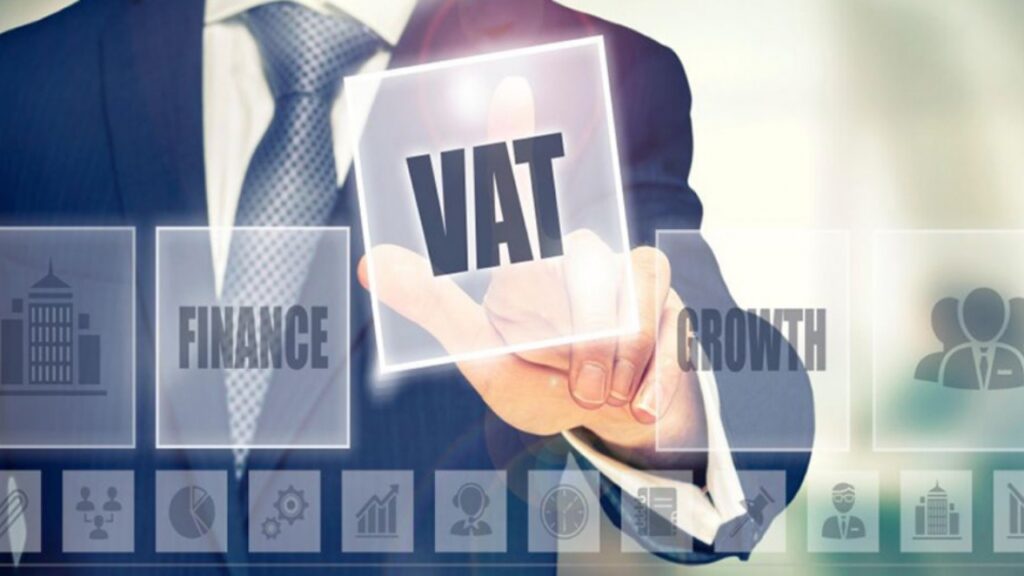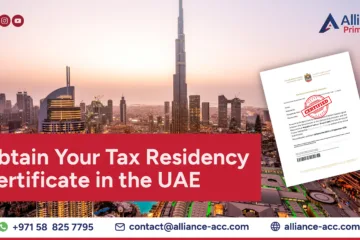The Value-Added Tax (VAT) was introduced in the UAE at a rate of 5% on 1 January 2018, aimed at establishing a new revenue stream for the Government. Since its implementation, businessmen are still trying to cope with new rules and regulations regarding VAT and are still confused between Zero-Rated VAT and Exempted VAT.
Since the introduction of VAT in the UAE, many businesses continue to face challenges in understanding and adapting to the regulations. A common source of confusion lies in distinguishing between Zero-Rated VAT and Exempted VAT. Despite being in place for several years, these categories often cause uncertainty among business owners, as the differences in tax treatment can significantly impact compliance and financial planning.
Understanding the nuances between these two VAT classifications is essential to avoid potential errors and ensure proper adherence to the rules set by the FTA.
The below article will help you understand the VAT concept and the mechanism behind Zero-Rated and Exempt supplies.
What is Value Added Tax (VAT)?
Value Added Tax is a form of indirect tax levied on the consumption of certain goods and services. VAT is added at each stage of the supply chain and in the form of a consumption tax that is ultimately borne by the end customer.

What are the types of VAT?
VAT can be divided into three major categories, depending upon the nature of supplies:
-
Standard-Rated VAT:
This category includes goods and services that are subject to the standard VAT rate of 5%. The Government of UAE has provided a detailed list of these goods, as described below in this article.
-
Zero-Rated VAT:
This includes goods and services that are exported to any GCC country that has not implemented VAT. In such cases, these goods are charged 0% VAT.
-
Exempted VAT:
This category includes goods and services that are not charged with any VAT. It means that they don’t incur any input or output VAT charges.
What are Zero-rated supplies in the UAE?
Zero-rated supplies, as defined by Federal Decree-Law No. (8) of 2017 on Value Added Tax (UAE VAT Law), are taxable supplies for which a VAT rate of 0% VAT is applied. This means that although VAT is technically levied on these supplies, the final price to the customer reflects no VAT charge. However, businesses making zero-rated supplies are entitled to recover the input tax they incurred on purchases related to those supplies.

List of Zero-rated Goods and Services under VAT in UAE
As per Article 45 of the Federal Decree-Law no (8) of 2017 on Value Added Tax, zero-rated supplies are followed:
- Educational Services: Zero-rated items include private and public-school education (excluding higher education), higher education provided by institutions owned by the government or 50% funded by the government, nursery and pre-school education, certain school activities, and educational school trips.
- Exports: Export of goods and services outside the GCC implementing states.
- Basic Healthcare: Preventive and basic healthcare services provided by approved entities (as per specific controls).
- Transportation: This covers international transportation of passengers and goods (including intra-GCC), including related services. This includes international flights and certain passenger transport within the UAE.
- Means of Transport: This includes the supply of airplanes, ships, and other vehicles used for passenger and goods transport (as defined by UAE regulations). It also covers related supplies for their operation, repair, and maintenance.
- Rescue and Assistance: Supplies for aircraft and vessels specifically designed for air and sea rescue operations.
- In-flight Supplies: Food, drinks, and other items consumed onboard airplanes, ships, and other approved transportation during travel.
- Investment Precious Metals: Gold, silver, and other precious metals meet specific purity standards for investment purposes (as defined by UAE regulations).
- New Residential Buildings: The first sale or lease of newly built residential buildings within 3 years of completion (as per specific controls).
- New Charitable Buildings: The first sale or lease of buildings specifically used by charities (as per specific controls).
- Converted Residential Buildings: The first sale or lease of buildings converted from non-residential to residential use (as per specific controls).
- Oil and Gas: The supply of crude oil and natural gas.
These zero-rated supplies allow businesses to apply a 0% VAT rate while still enabling them to reclaim input VAT on purchases related to these supplies.
What are Exempt Supplies in UAE?
Exempt supplies, unlike zero-rated supplies, are not considered as a taxable supply. This means that no VAT is levied on these supplies, and businesses making exempt supplies are not entitled to recover any input tax they may have incurred on related purchases.
List of Exempted Goods and Services under VAT in UAE
In Article 45 of the Federal Decree-Law no(8) of 2017 on Value Added Tax, the following supplies are exempted from tax:
- Financial Services: Services offered by banks, investment firms, and other financial institutions, as defined in the UAE VAT regulations. This could include things like loans, investment products, interest on loans, credit cards, finance leasing, and money transfers.
- Domestic Transportation: Domestic passenger transportation, including flights within the UAE, is exempt.
- Insurance and Reinsurance: Life insurance and life reinsurance are exempt.
- Government Activities: Sovereign activities carried out by designated government bodies, which are not in competition with the private sector, are considered outside the VAT system and are effectively exempt.
- Not-for-Profit Organizations: Activities of foreign governments, international organizations, diplomatic bodies, and charitable activities listed by the Cabinet Decision are exempt. Non-business activities of not-for-profit organizations are also exempt.
- Resale of Existing Homes: This covers the sale or lease of any residential property that’s not considered a new build (first supply) under zero-rating (within 3 years). So, buying a used apartment and selling it later would be an exempt supply.
- Bare Land: The sale or lease of vacant land, meaning any land without a building on it.
- Local Public Transport: This includes bus services, metro systems, taxis, and any other form of public transportation operating within the UAE.
- Salaries: Activities undertaken by employees in the course of employment, including salaries, are outside the VAT system and considered exempt.
- Tax Group: Supplies between members of a single tax group are exempt.

Difference between Zero-Rated VAT and Exempted VAT
Businessmen are often confused by the terms Zero-Rated VAT and Exempted VAT due to their similar implication of no VAT being charged on certain goods or services. However, the two terms have distinct differences in how they affect businesses. While both categories result in no VAT being collected from the customer, the key distinction lies in input tax recovery: businesses dealing with zero-rated supplies can still reclaim VAT on their purchases, whereas those providing exempt supplies cannot. The differences between them and their implications for businesses are explained in more detail below.
-
Input VAT Recovery
Zero-Rated VAT: Businesses can recover the VAT paid on their expenses (input VAT) related to zero-rated supplies. This recovery reduces the overall tax burden, which is beneficial for maintaining cash flow.
Exempted VAT: Businesses cannot recover input VAT on expenses related to exempt supplies, which may increase operational costs as these are non-recoverable expenses.
-
Impact on Business Cash Flow
Zero-Rated VAT: Zero-rated supplies, being part of taxable turnover, require businesses to maintain detailed records and report them. However, the ability to reclaim input VAT can positively impact cash flow.
Exempted VAT: Exempt supplies do not form part of the taxable turnover, and businesses making only exempt supplies may not even need to register for VAT. This lack of registration means no input VAT recovery, potentially straining cash flow.
-
Vendor Registration and Compliance
Zero-Rated VAT: Vendors supplying zero-rated goods or services must register for VAT if their turnover exceeds the threshold, ensuring compliance with tax laws. They must also document all transactions to prove VAT eligibility.
Exempted VAT: Vendors dealing only in exempt supplies may not qualify for VAT registration, as their supplies are not taxable. This situation simplifies compliance but restricts input VAT recovery.
-
Pricing and Profitability
Zero-Rated VAT: Recovering input VAT enables businesses to keep their costs lower, allowing for more competitive pricing and potentially better profitability. These supplies still contribute to taxable turnover, requiring careful financial management.
Exempted VAT: Since exempt supplies do not contribute to taxable turnover, and no input VAT is recoverable, businesses may face higher operational costs. This scenario might necessitate higher pricing to maintain profitability.
-
Documentation and Reporting
Zero-Rated VAT: Vendors must document all transactions meticulously as part of the VAT reporting process, ensuring that they can claim input VAT deductions and remain compliant with tax regulations.
Exempted VAT: For exempt supplies, vendors have less stringent documentation requirements since they do not claim VAT deductions. This reduces administrative overhead but limits tax recovery options.
-
Taxable Turnover Inclusion
Zero-Rated VAT: Supplies are included in taxable turnover, impacting VAT registration thresholds and reporting obligations. This inclusion ensures that businesses remain integrated into the VAT system, allowing them to claim input VAT.
Exempted VAT: Supplies do not contribute to taxable turnover, which can lead to simpler accounting but may exclude businesses from VAT registration and the benefits of input VAT recovery.
Happy VAT Filing!
When it comes to VAT and taxation in the UAE, it’s crucial to have all aspects of your business model clarified and verified to ensure compliance with the rules and regulations. Hiring a professional VAT consultant is highly recommended to accurately categorize your transactions and services under Zero-rated or Exempt supplies. Doing so will help you avoid the risk of non-compliance and the penalties that come with it. Failure to properly distinguish between exempt and zero-rated supplies can cause significant issues during tax filing and returns. Although VAT laws in the UAE have been in place for a few years, it’s still essential to consult with an expert to navigate the complexities and reduce the risks of legal consequences.
Read more blogs:




